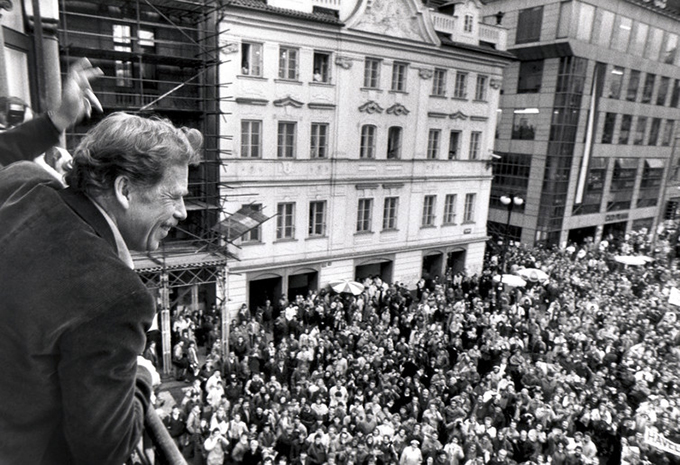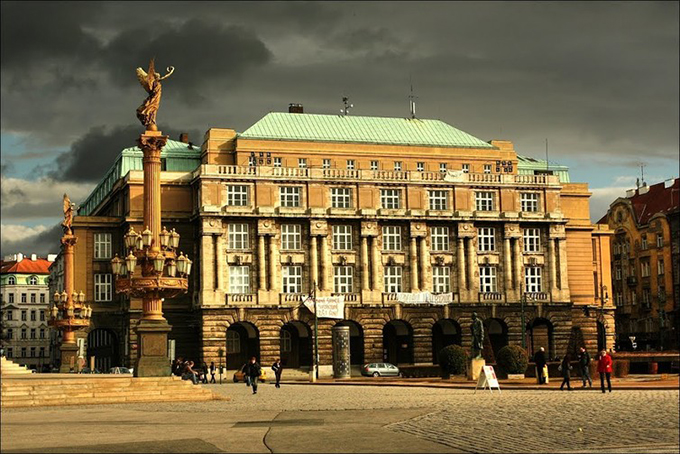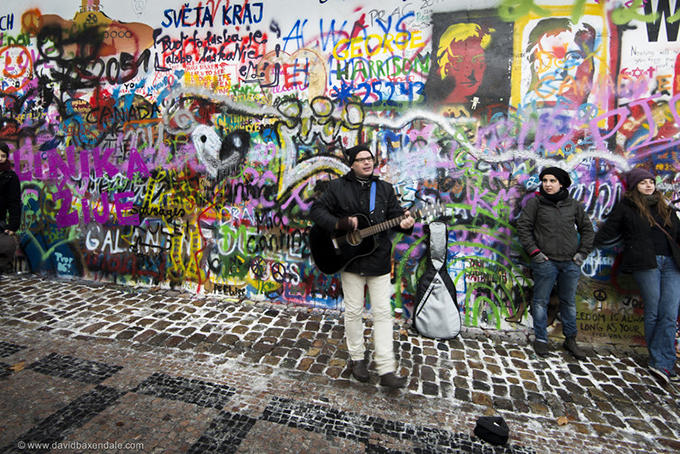
Bad working conditions in the field of academia are gaining attention across the world. In the UK, researchers and university staff have launched campaigns to fight labour casualisation. In the US, graduate assistants are seeking to unionise for fair pay and benefits.
In the Czech Republic, however, the subject is practically non-existent. The Czech government spends less than 1.5% of its GDP on tertiary education, which is less than the OECD average.
This underfunded system of 26 public and 40 private universities provides terrible material conditions for graduate students, but neither the media nor academia itself has taken much note.
This article, co-authored by a professor at the nation’s largest university and a student member of that institution’s academic senate, is one of the first attempts to outline the challenges faced by young Czech academics and intellectuals today.
“This life isn’t worth a damn”
Michal, 32, is working towards a PhD in history at Charles University. The rent for his flat in Prague was a stretch when he was employed in the private sector, but now that he is working in the humanities it has become a serious burden.
Between teaching at a university and participating in research projects at the Academy of Sciences, Michal barely makes ends meet.
“I often sleep only three or four hours a day. I don’t have the time for anything,” he told us recently at an interview in a Prague coffee house. “Since January, I have taken sick leave three times, if you consider having to defend grant requests, working into the night, health issues and finishing up the flat…. This life isn’t worth a damn.”
This lifestyle of holding down several gigs at once is typical for young Czech academics.
A part-time contract does not pay enough to survive, and a full-time job doesn’t offer much more. Salaries also differ vastly from institution to institution and often have little correlation with experience or qualifications.
“Definitely more than 40 hours a week”
Petr, 35, is an assistant professor at Charles University, who earns 17,500 Czech crowns a month (about €660), a reminder that wages in the Czech Republic remain low despite economic growth.
He shared the details of his working life with us in February 2017 in his office:
I work full-time, meaning five lectures a week, one or two of them in English. Apart from that, I’ve got consulting hours, seminars, I have to read and supervise students’ theses and do a lot of administrative work, making it hard to estimate my exact working hours. It is definitely more than 40 a week, though.
To pay the bills, Petr also teaches at another school and does translations. He is yet another example of the conditions faced by doctoral students in the Czech education system. A 2015 study showed that many young intellectuals soon leave their field.
State-ordered poverty
The system is a reflection of both the historical optimism and neoliberal thinking prevalent after the collapse of the Soviet bloc in 1991.
In the early 1990s, the Czech ministry of education made the decision to prioritise limited funding for the “hard” disciplines, like economics, medicine, law and technical education, under the assumption that these fields were more useful for the market.
Humanities scholars, public officials imagined, needed just a bit of bread, a glass of water, paper and a pencil to do their work – a romanticised idea of intellectualism inspired by the fall of the Iron Curtain in 1989.

Presidential candidate Vaclav Havel waving to his supporters from a balcony in Prague on December 19 1989. Petar Kudjundzic/Reuters
This idea was reinforced by the economic demand coefficient theory (known by its Czech abbreviation KEN), which stipulates that the humanities and the social sciences are not economically demanding. That is, they do not need much money to function effectively.
And so, almost for 30 years, the humanities have been given the fewest resources in the Czech Republic’s already meagre higher education budget.
There are few exceptions to this rule and many victims, including the Faculty of Arts in Prague. Although the school is widely regarded as the best humanities institution in the country – hosting thousands of students and producing hundreds of future diplomats, writers and translators each year – the vast majority of its more than 40 departments have a KEN of one, which is the lowest.

The Faculty of Arts in Prague, one of the Czech Republic’s most prestigious, and underfunded, educational institutions. Author provided
Arabic is another casualty. It’s hard to study a language without books or trips abroad, and yet today the Czech government is asking where all the Middle East scholars are when we need them. (Our best guess: making good money working for Amazon’s global retail empire.)
Brain drain
Though the bad working conditions of academics is not a subject of much public debate, the role of intellectuals in Czech society is.
For some in this post-communist country, intellectuals are elitist, removed from the “common folk”. Others praise intellectuals as nonconformist critical dissidents and “prophets”.
But the Czech Republic’s treatment of its intellectual class raises existential concerns about brain drain and the loss of revolutionary fervour.

The John Lennon Wall in Prague, where some gather at dusk to sing and express their freedom. David Baxendale/flickr, CC BY-SA
Imagine that a motivated PhD student should appear on the scene – a talented and poetic writer with a dissident’s spirit. Today, that person is more likely to forego an academic’s poverty wages and work abroad than to become another Vaclav Havel.
For a young nation like the Czech Republic, that is not good. We need intellectuals to challenge authority, stimulate critical thinking and help build an open society.
Is there hope for intellectuals?
Why has nothing has been done to fix this three-decade-old problem?
Unfortunately, the scarcity of resources has sparked competition rather than strategic thinking. As schools are forced to compete for miserly bits of funding, departments plot among and against themselves, entrenching inequalities.
The daily jockeying for positions, projects and jobs has fomented frustration and undermined the solidarity needed to improve wages and budgets. That makes it harder for organised labour, which we see as the only way out of this mess, to do its job.
The Czech university education system has one large labour union with branches at every university. It is a relatively marginalised entity that deals mostly with administrative issues and workers’ rights. Its fate reflects the post-Soviet vision of unions as a dangerous communist legacy and an obstacle to economic growth.
Still, there is a chance. The union’s strength lies in inter-university cooperation: one branch in one school cannot do much, but working together, several branches could exert substantial pressure on the higher echelons of university administration.
There are also student associations whose members organise discussions and public events about precarious working conditions, which have experience dealing with the authorities. Undergraduates will quite soon be affected by the same problems as PhD students and young professors, so they, too, have an interest in fighting for basic rights such as dignified wages, secure labour conditions and shorter working hours.
With co-operation, organisation and mobilisation, Czech academics can achieve a better existence. It’s either that or a life of stress and poverty. Hopefully intellectuals will be smart enough to choose the right path.
Author Bio:Jaroslav Fiala is a Political Scientist at Charles University, Prague
This text, adapted from an article that appeared (in Czech) on A2larm, is co-authored by Sára Vidímová, a postgraduate student in political science at Charles University. It has been translated by Michal Chmela.
